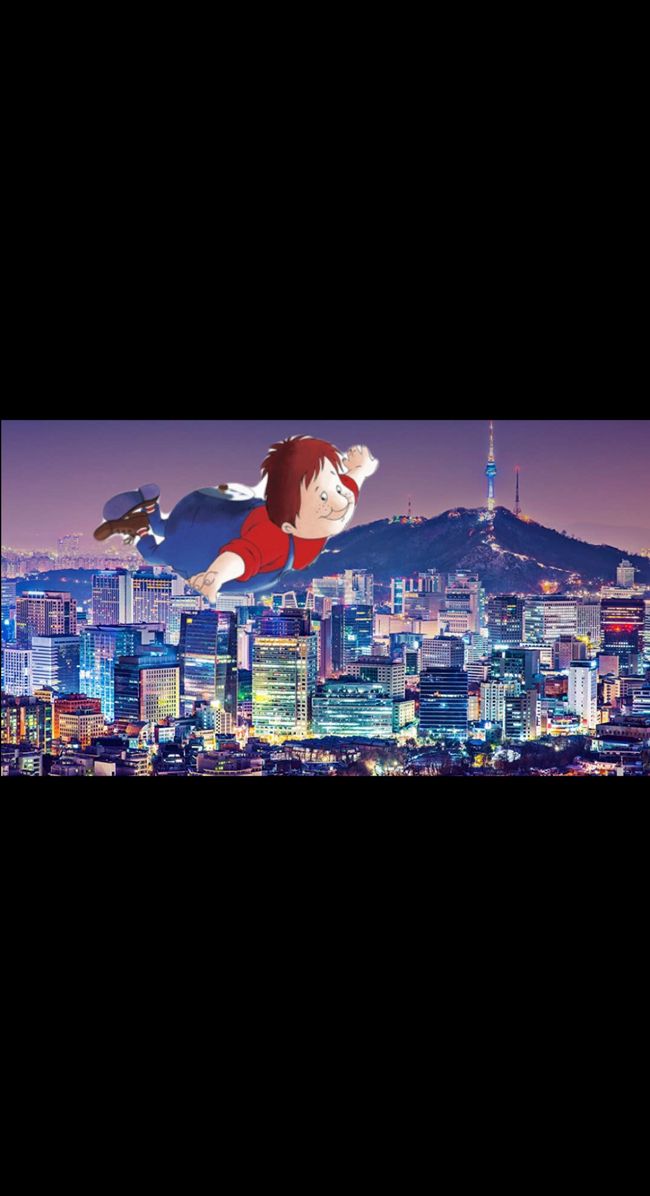
raphaelinseoul
vakantio.de/raphaelinseoul
Weekend trip to the South
Wɔatintim: 05.04.2022
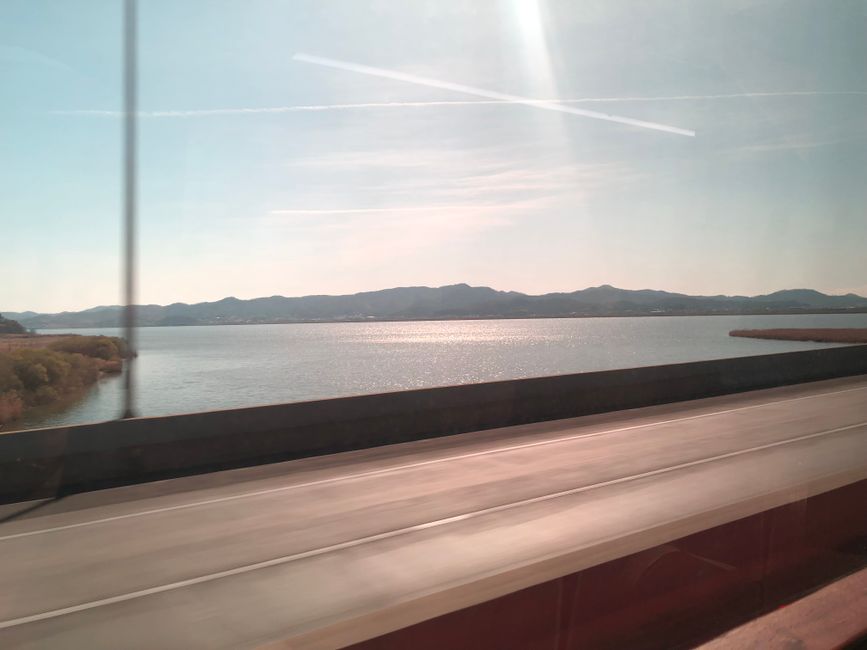
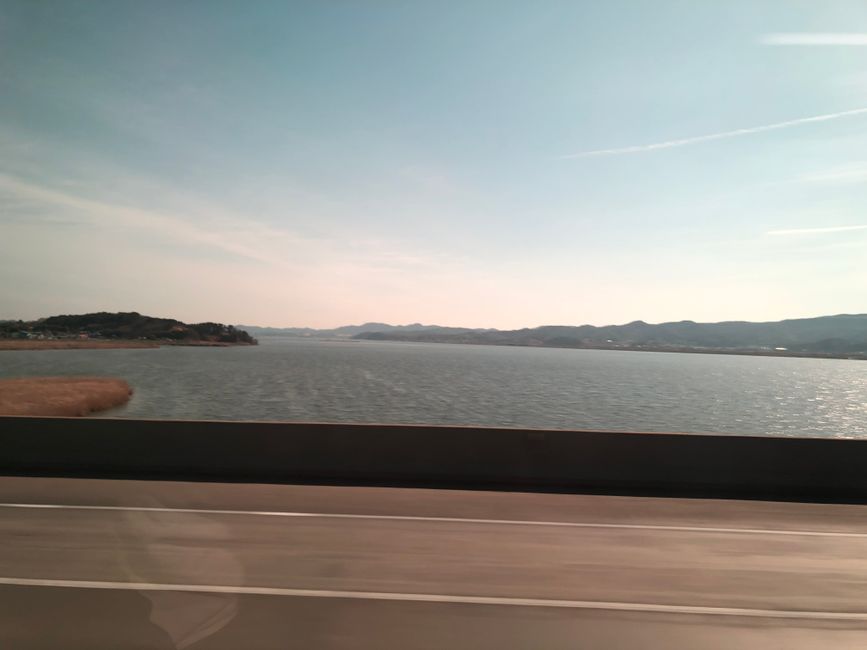
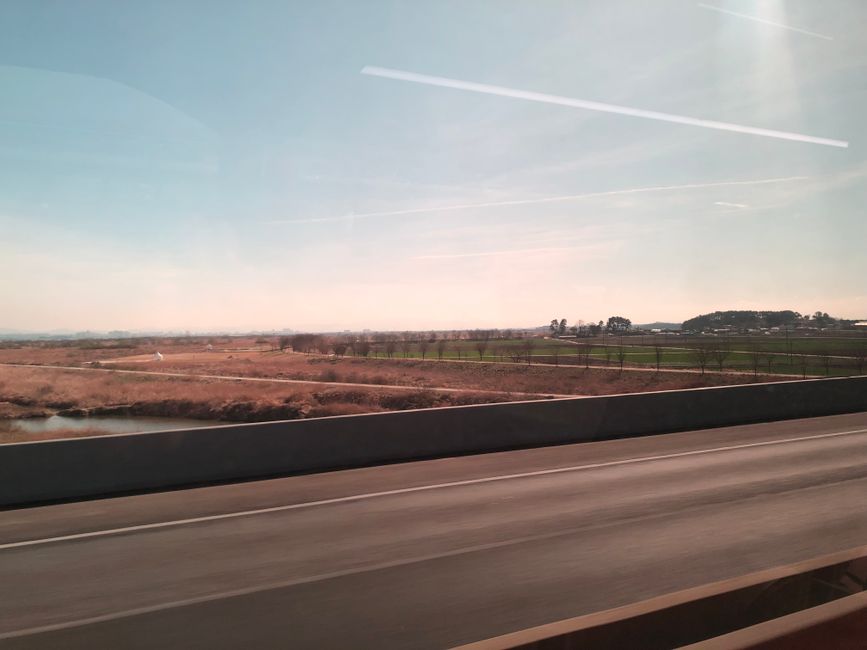
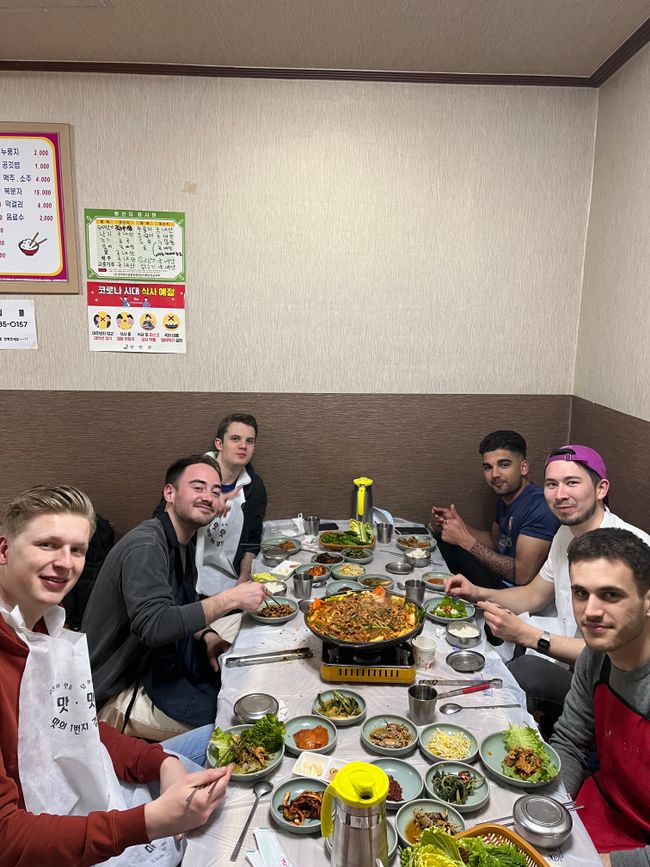
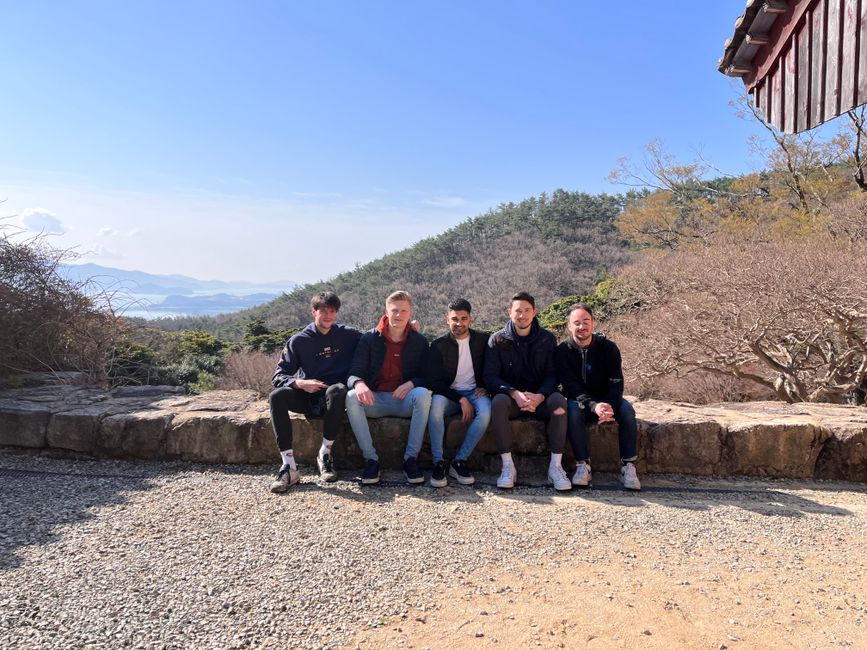
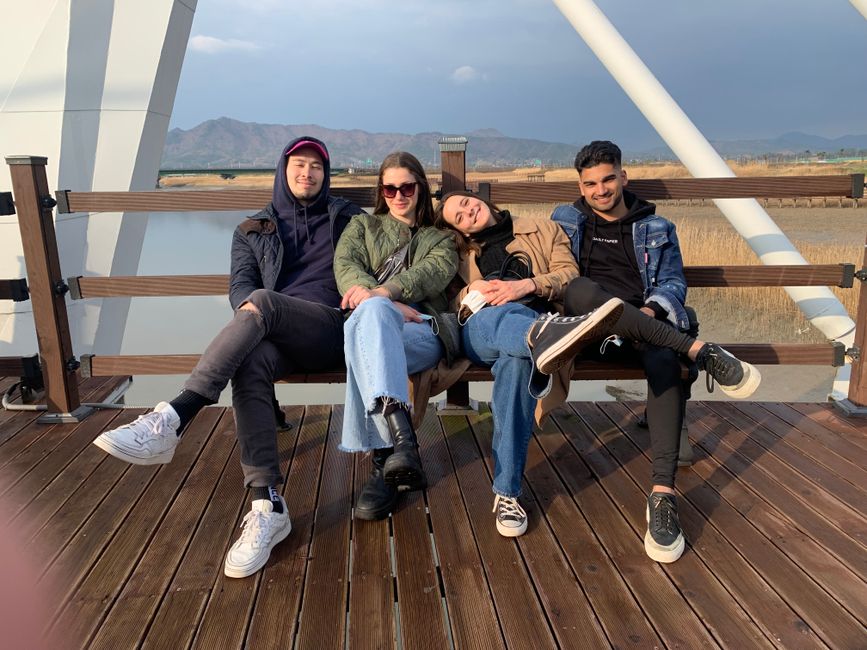
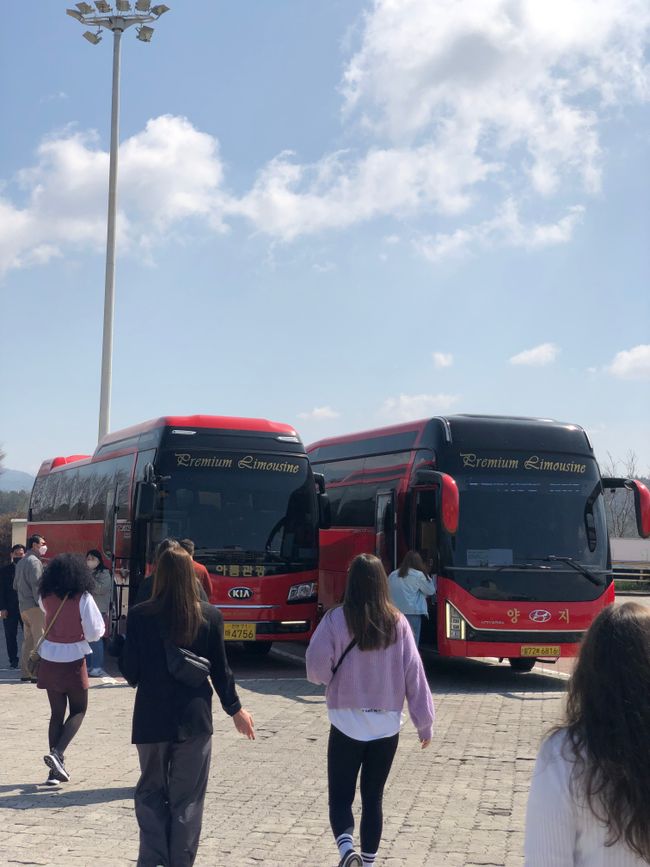
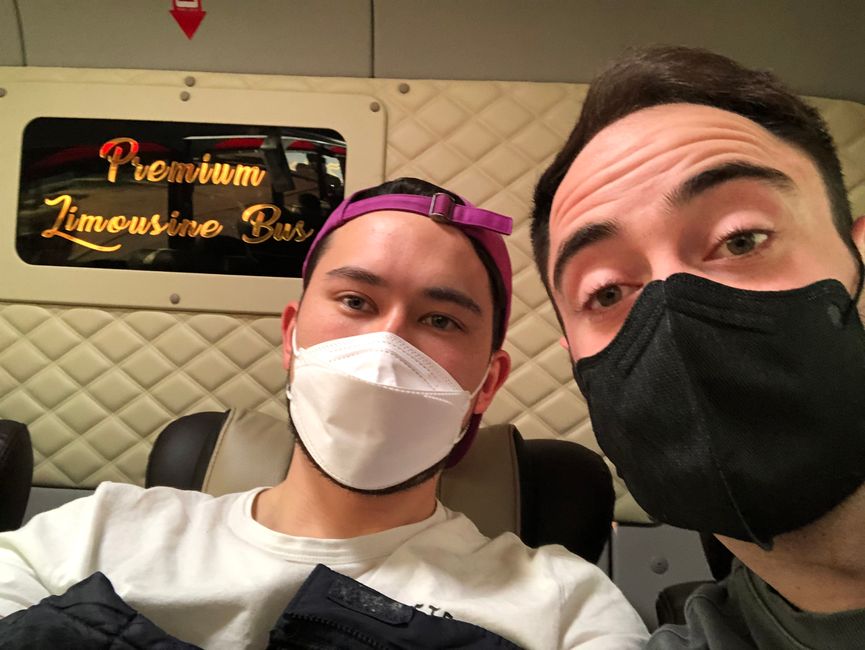
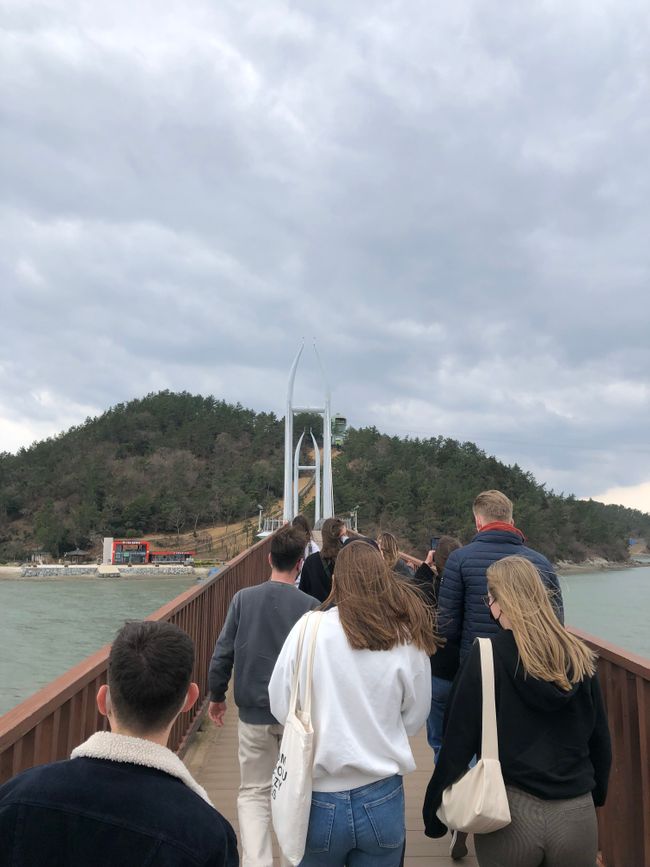
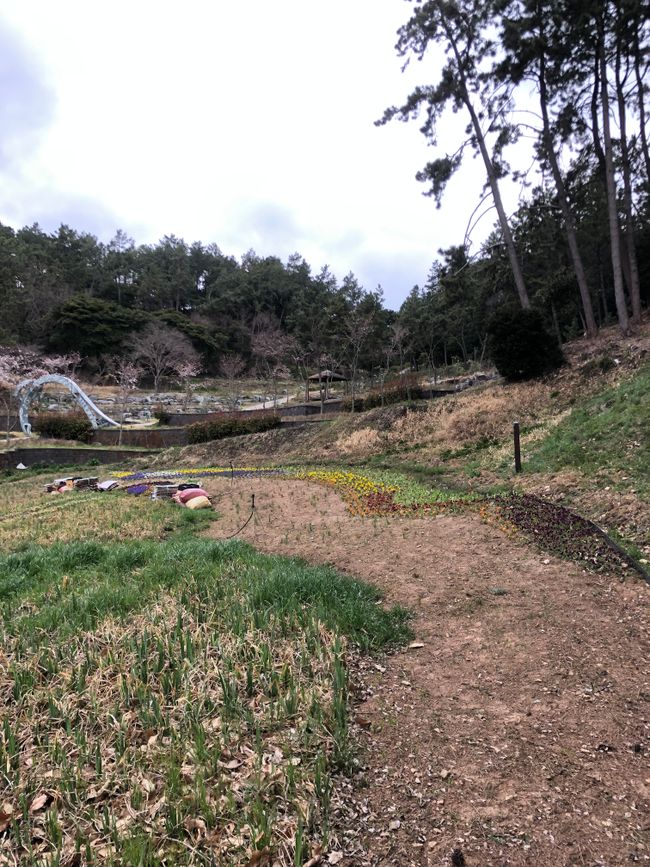
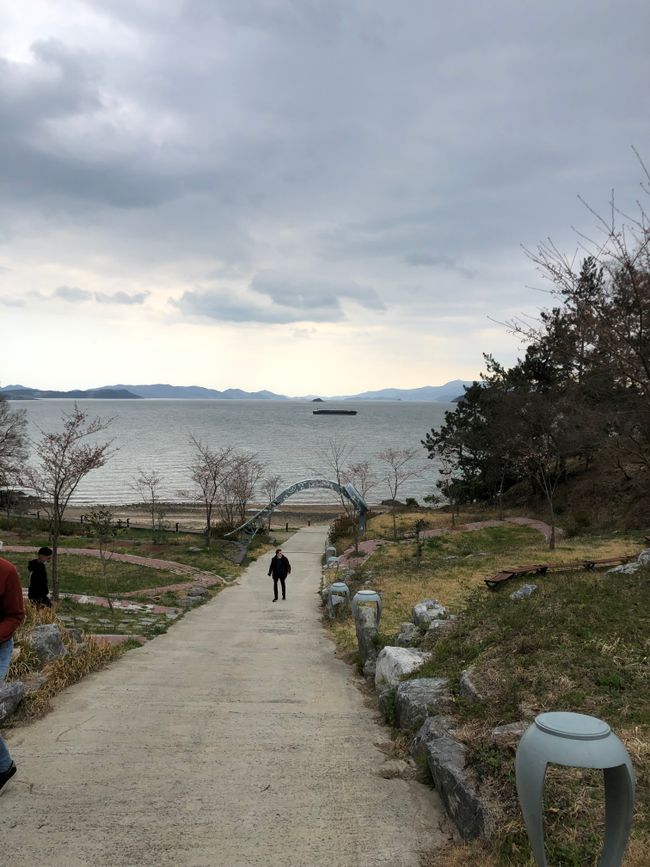
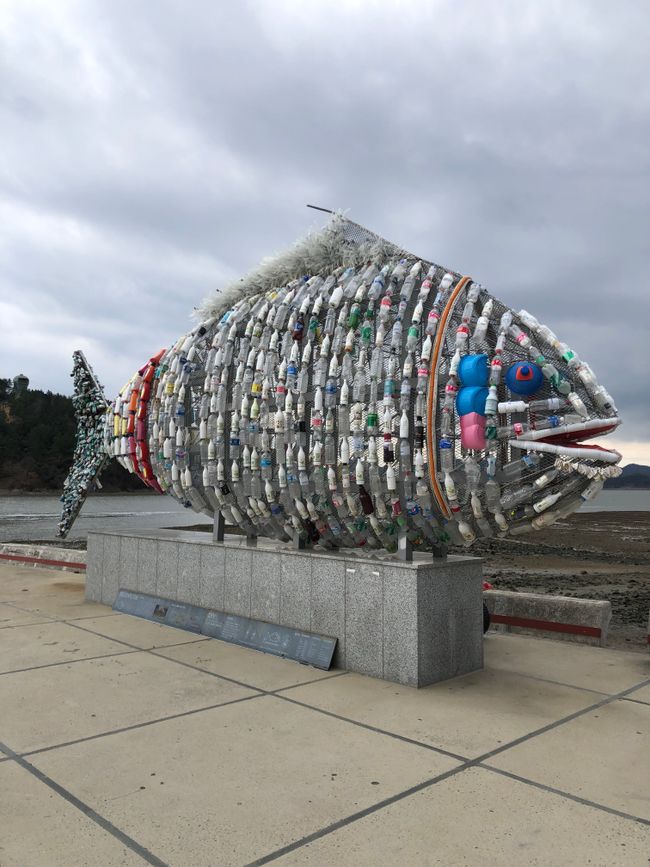
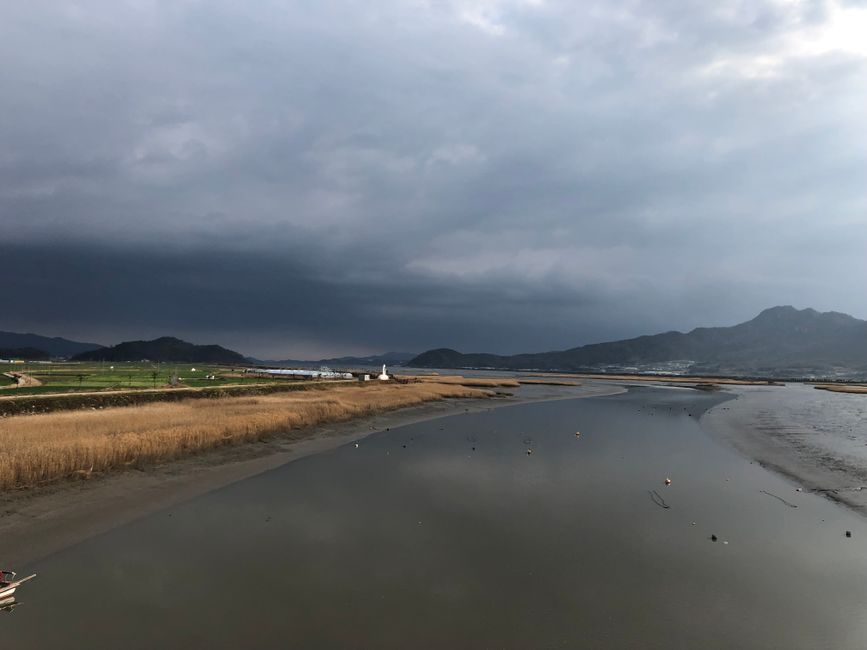
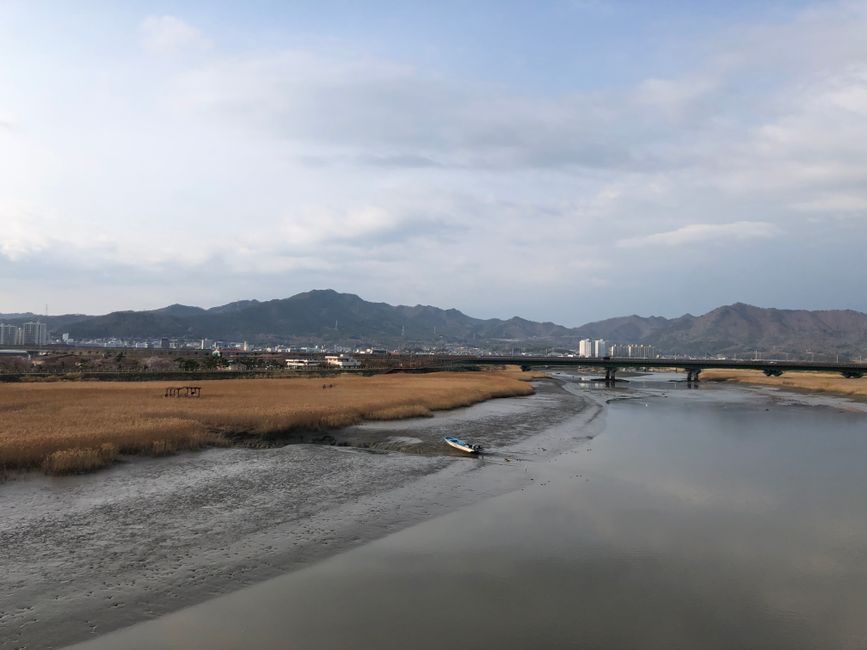
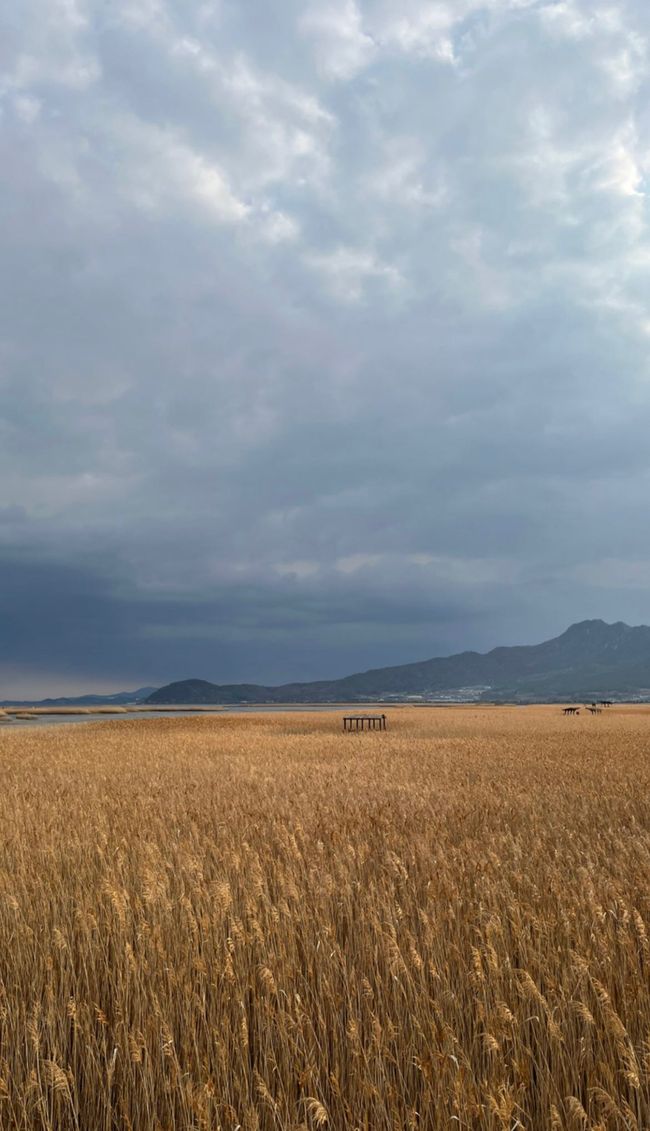
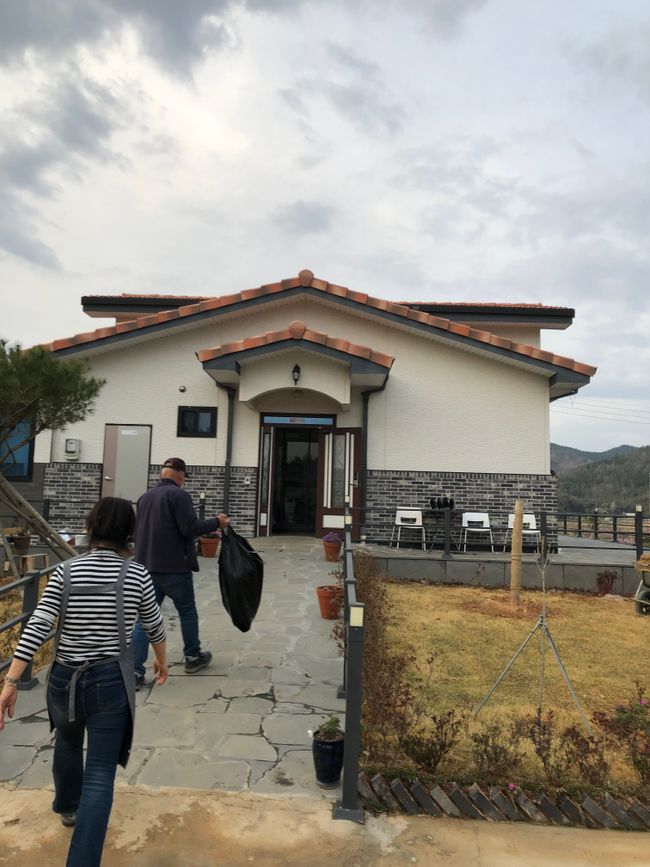
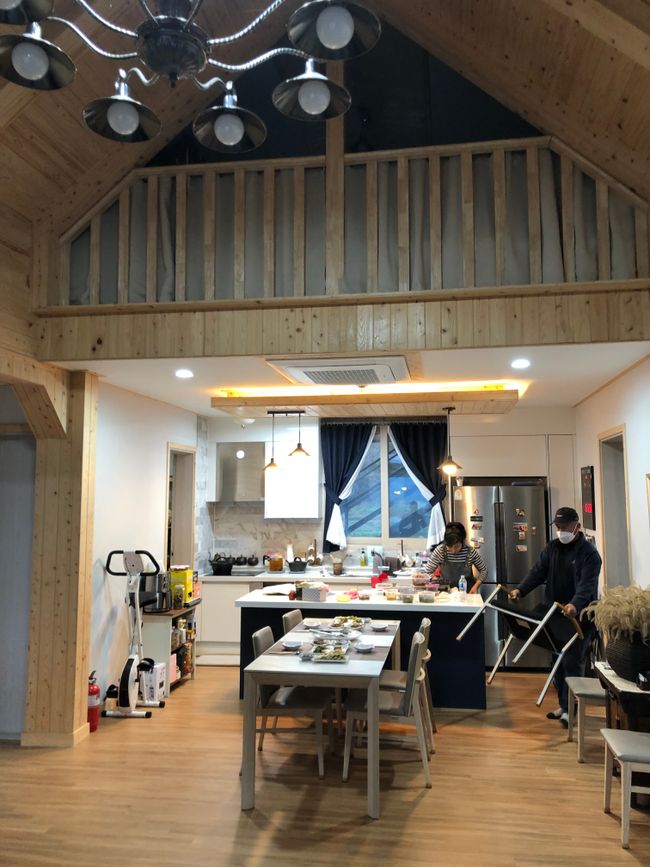
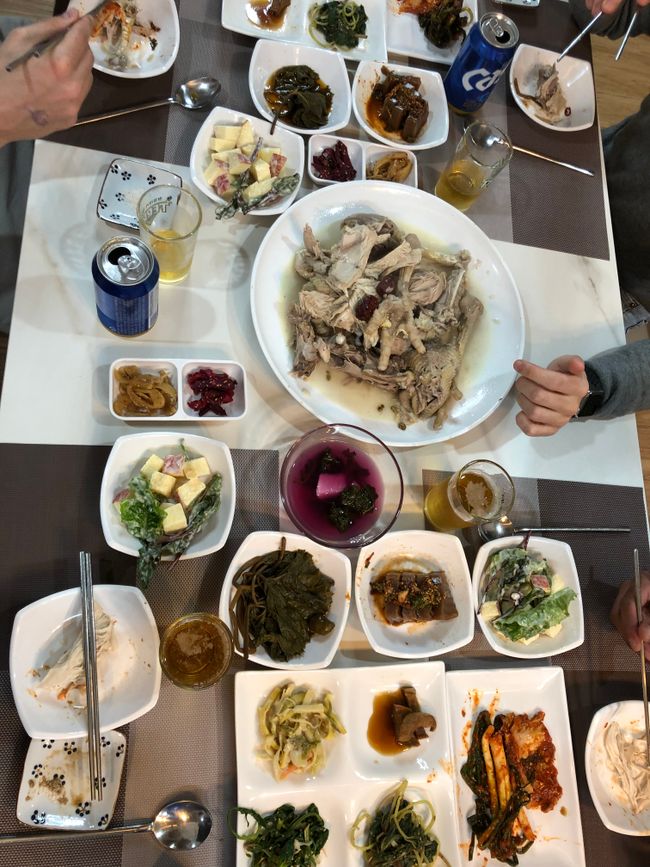
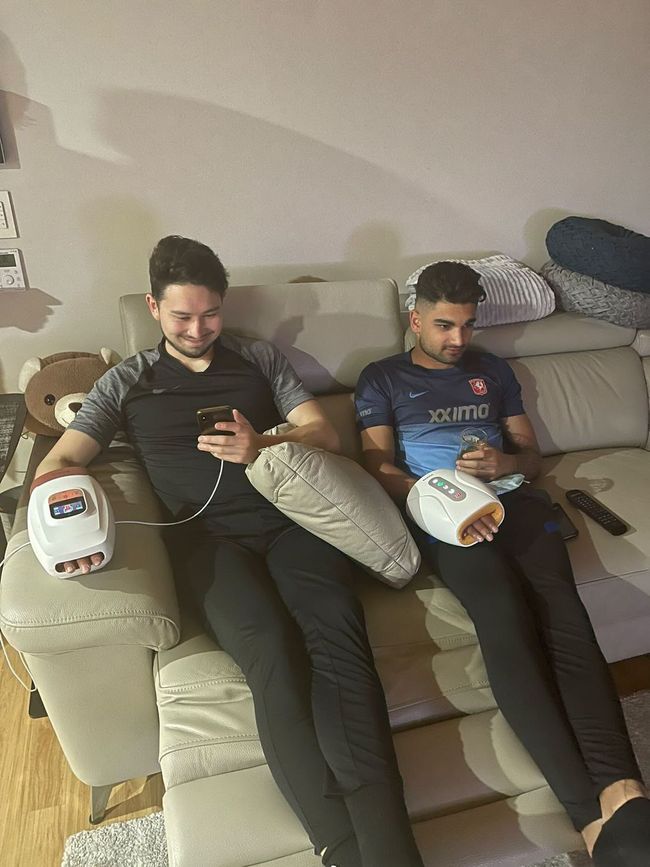
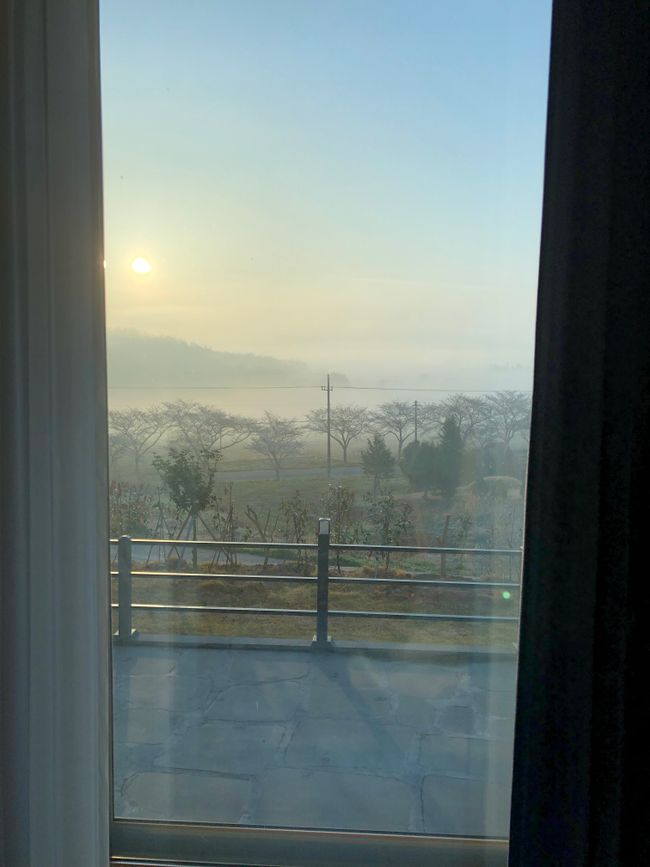
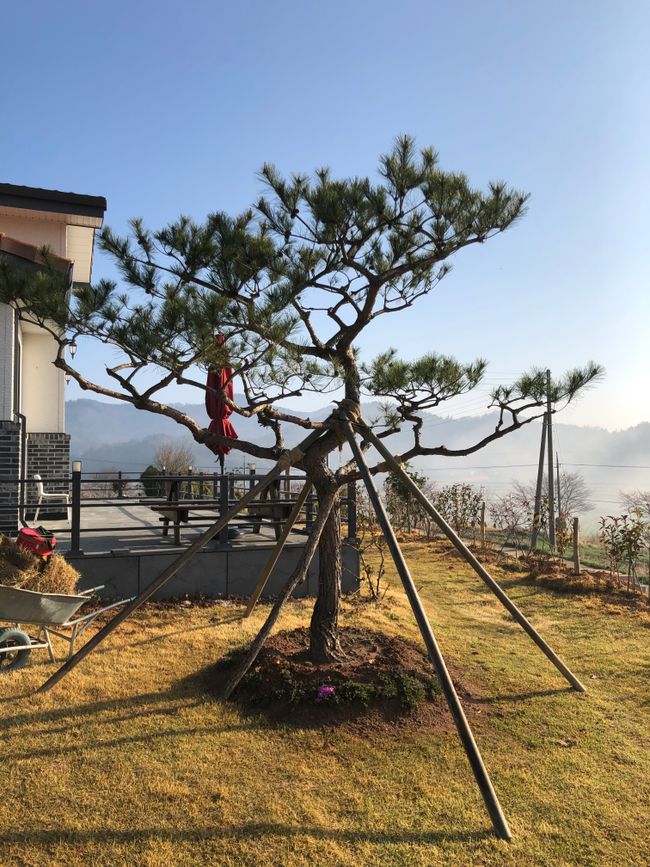
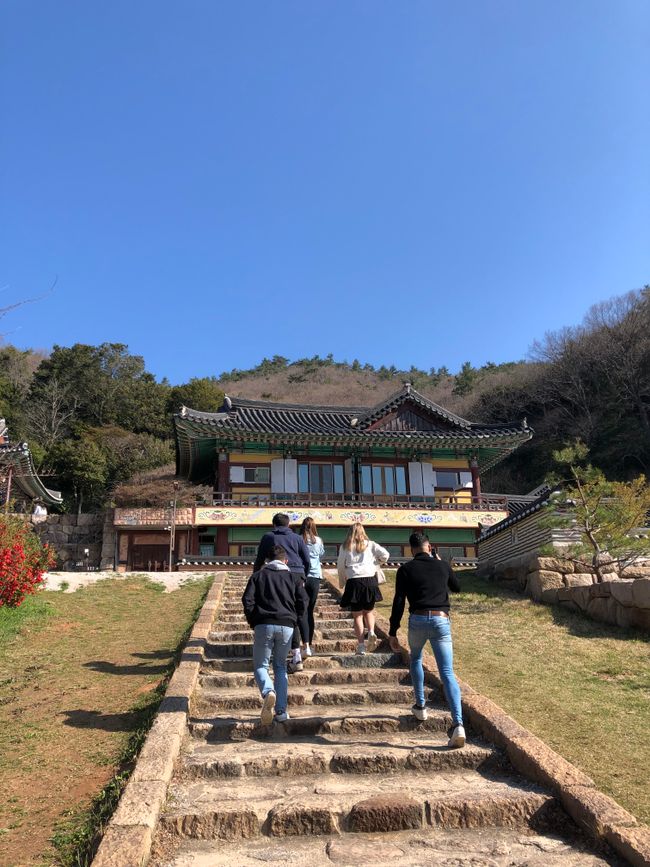
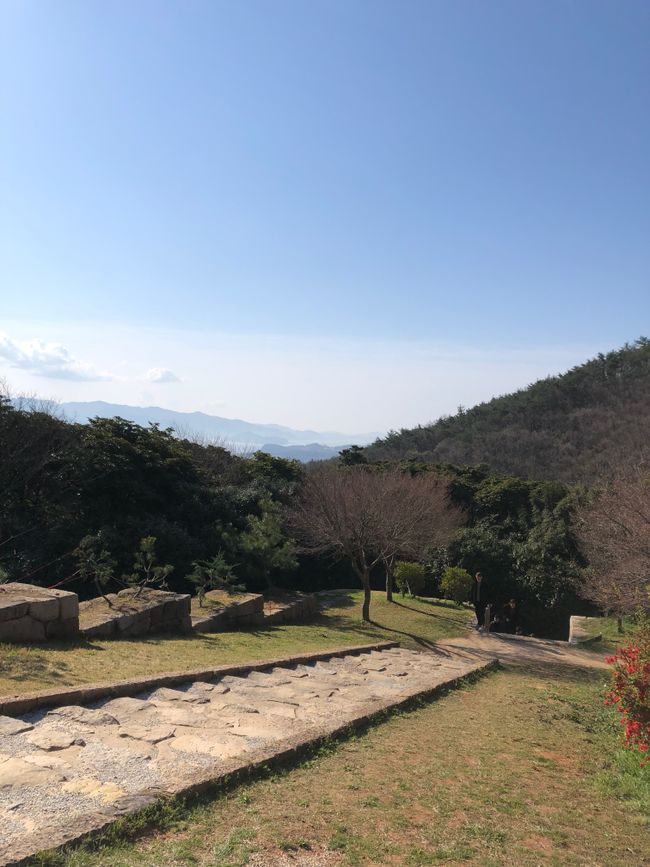
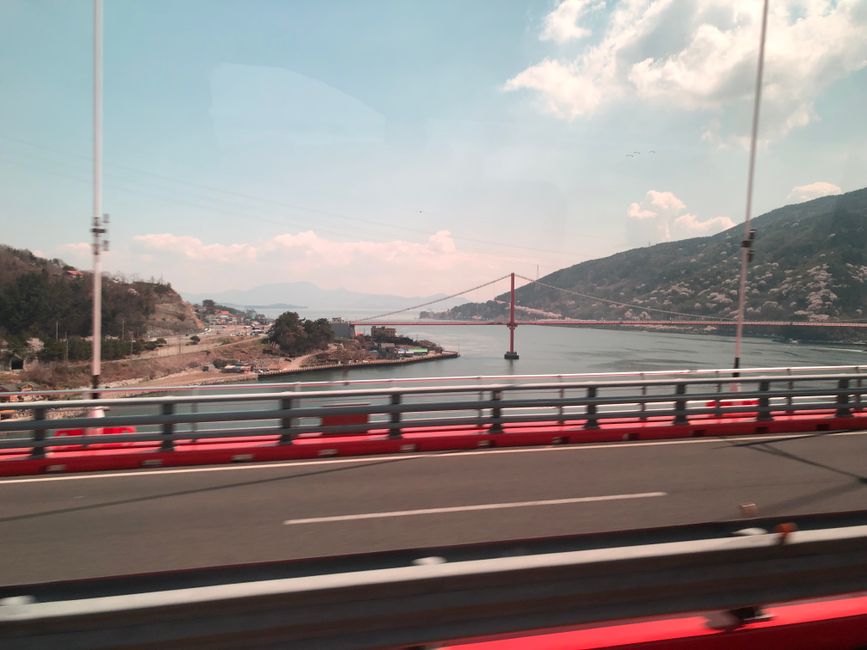
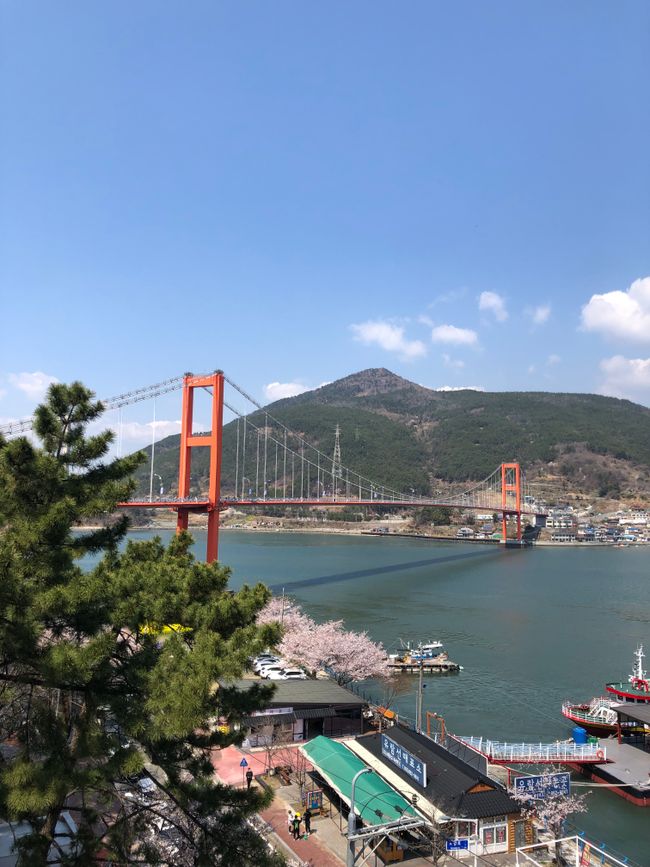
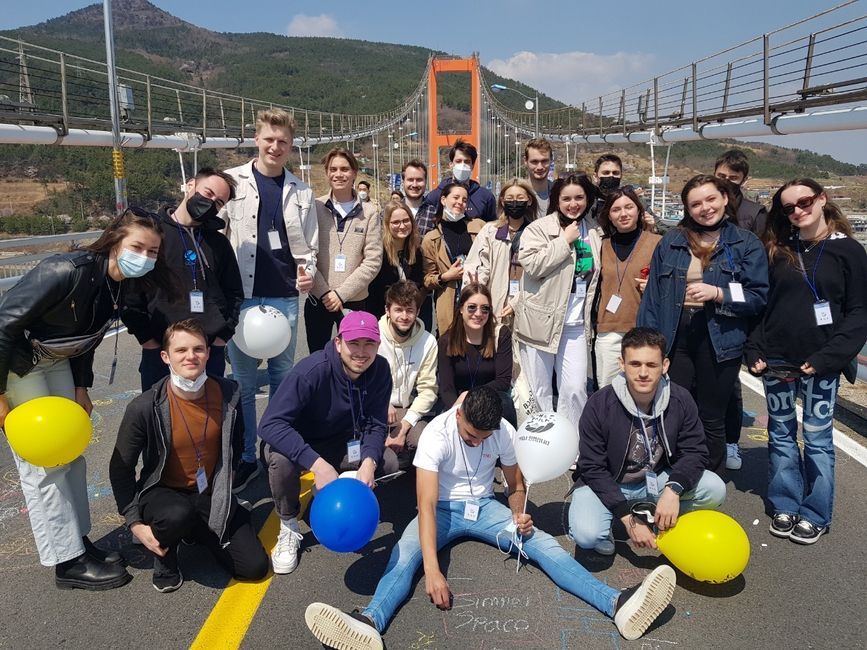
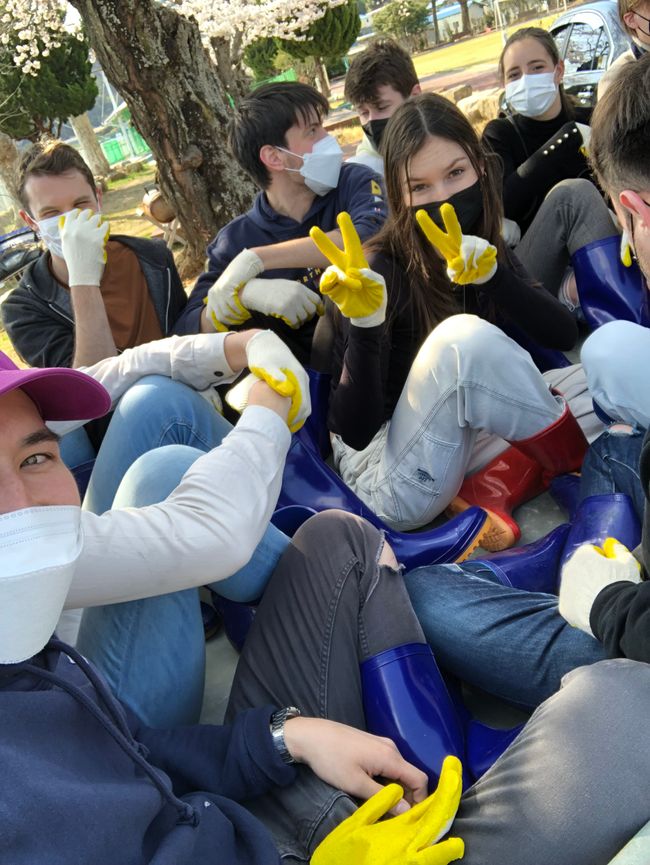
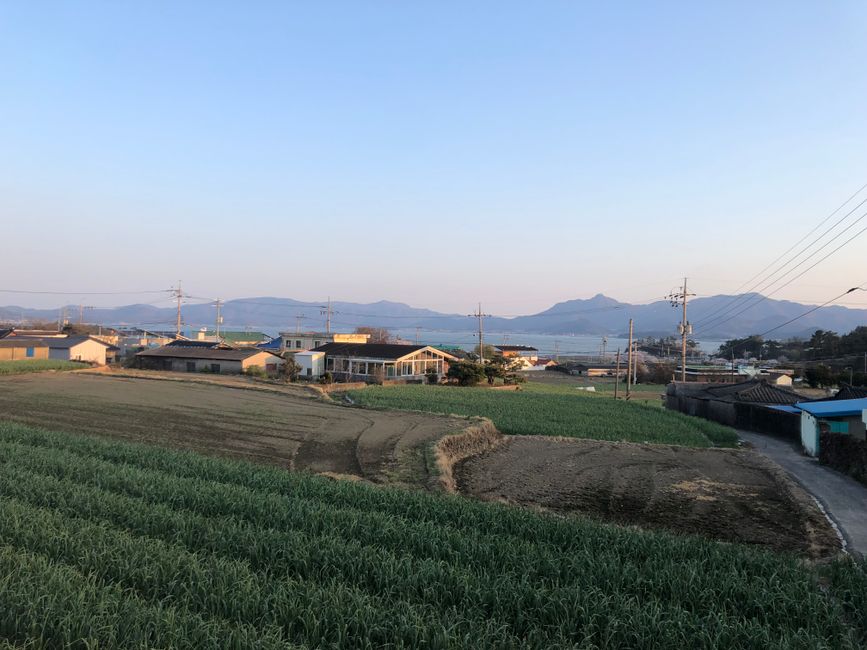
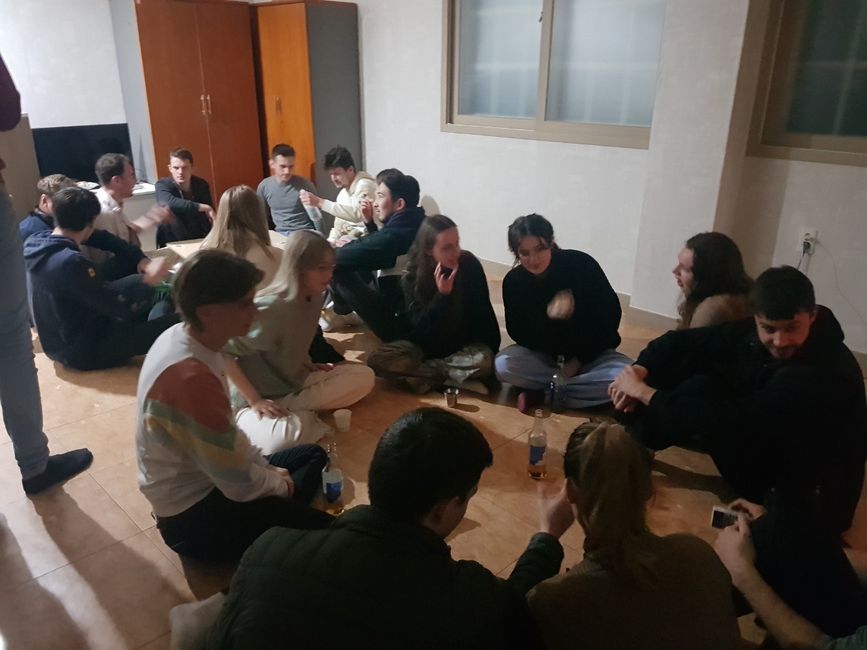
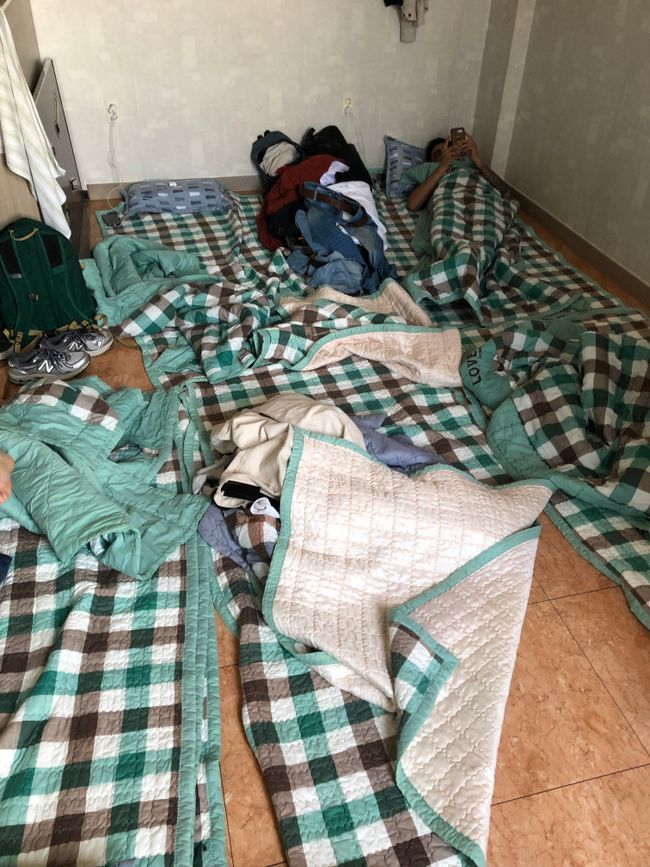
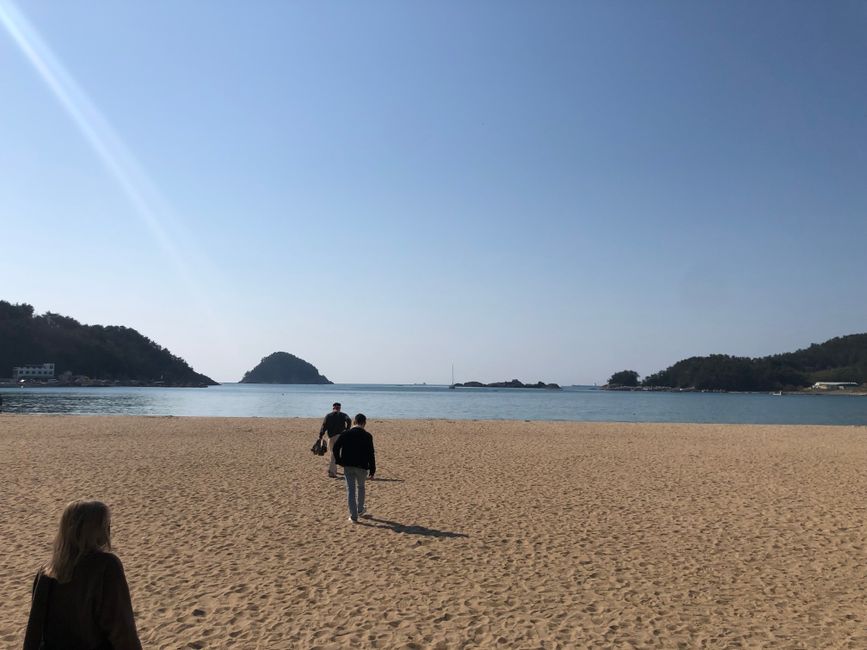
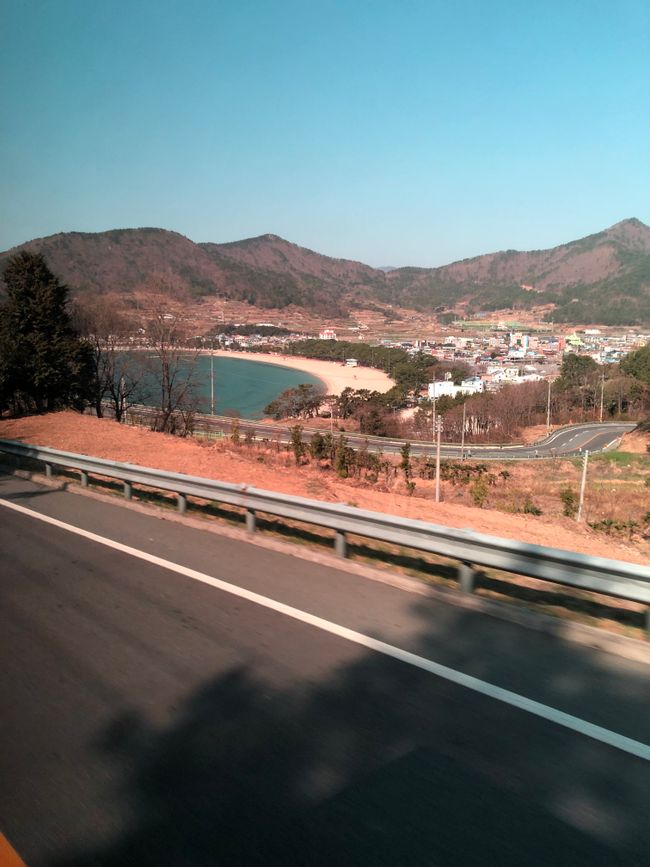
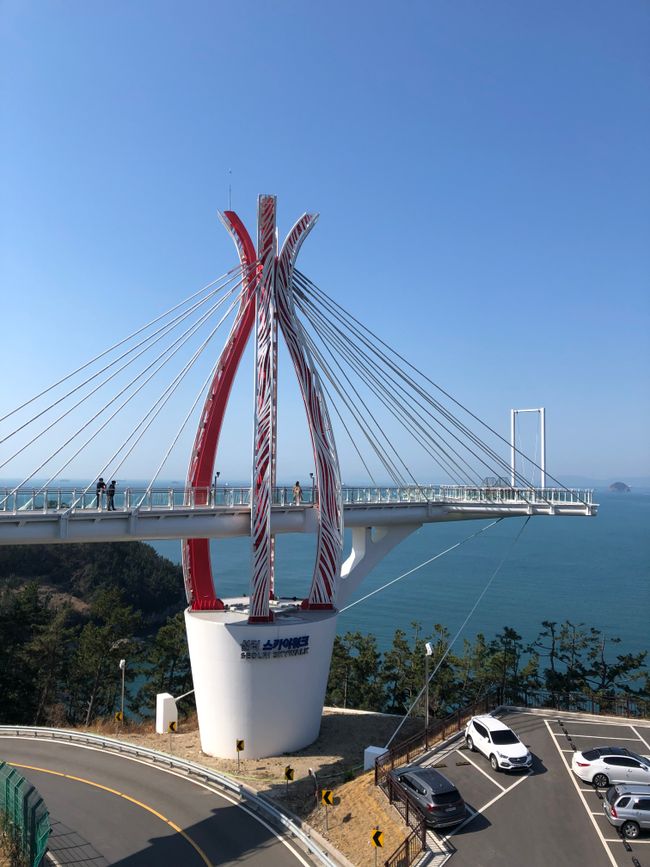
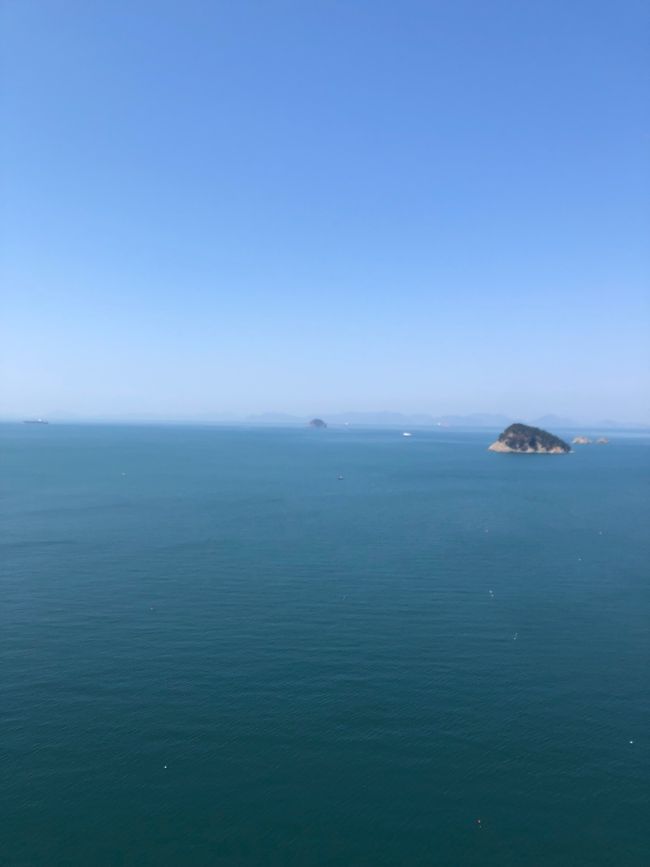
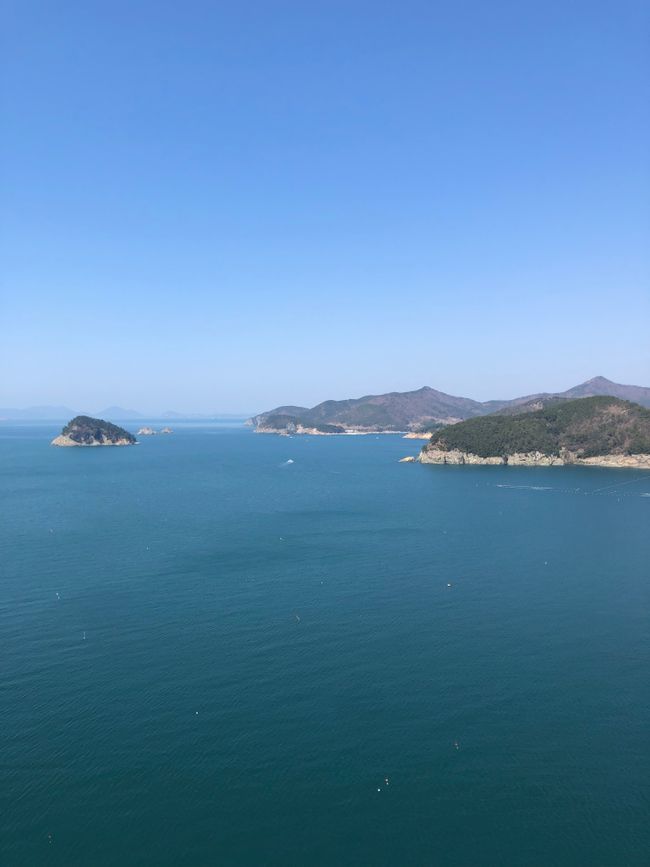
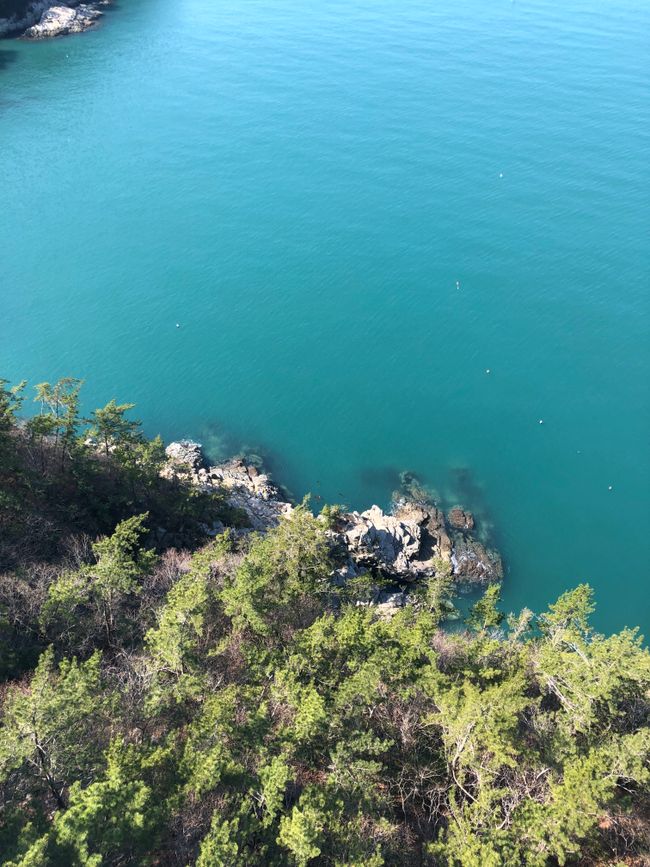
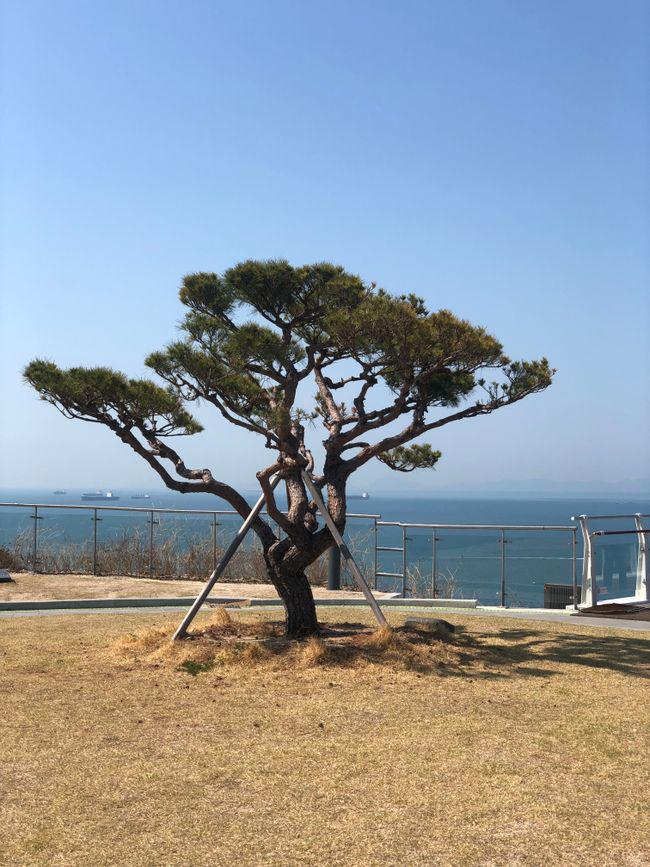
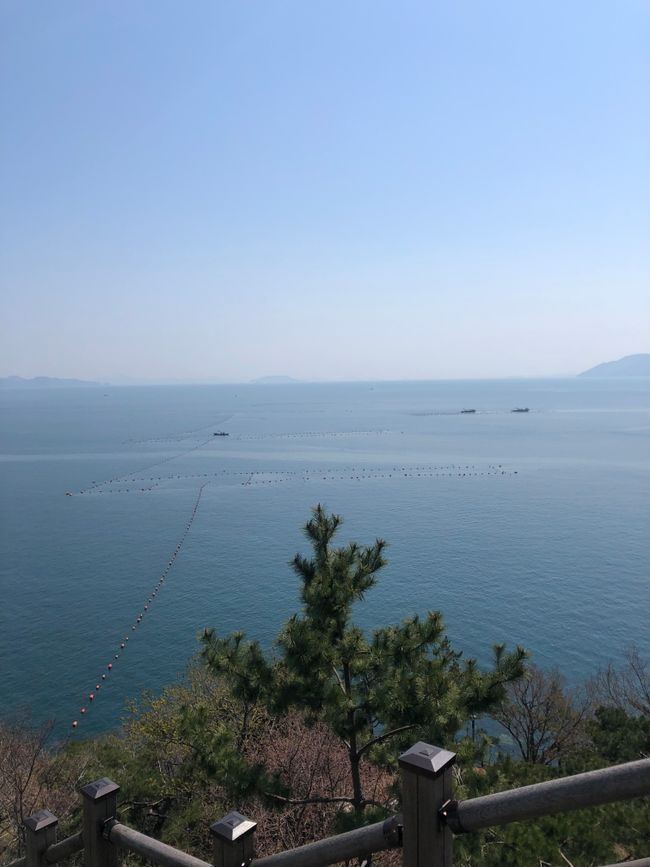
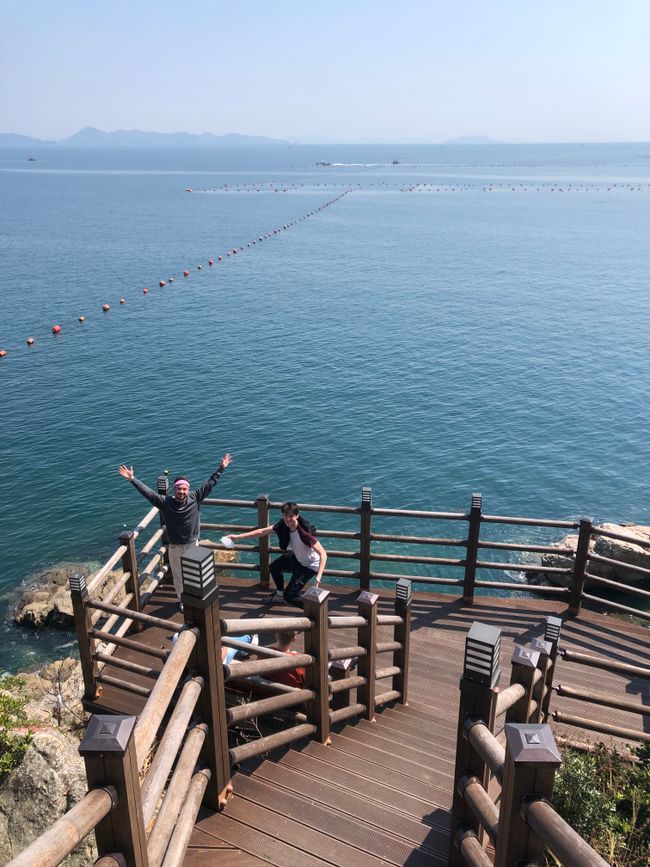
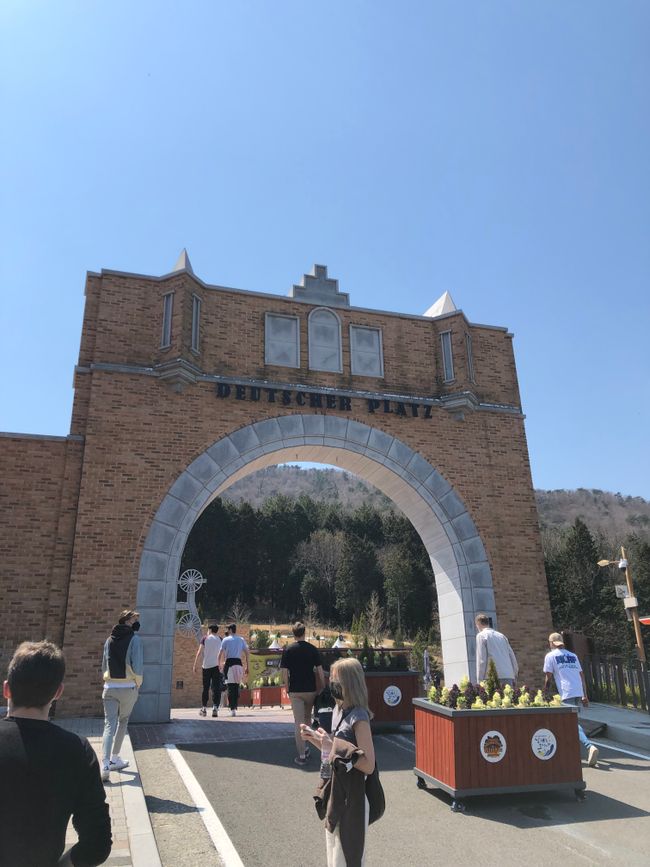
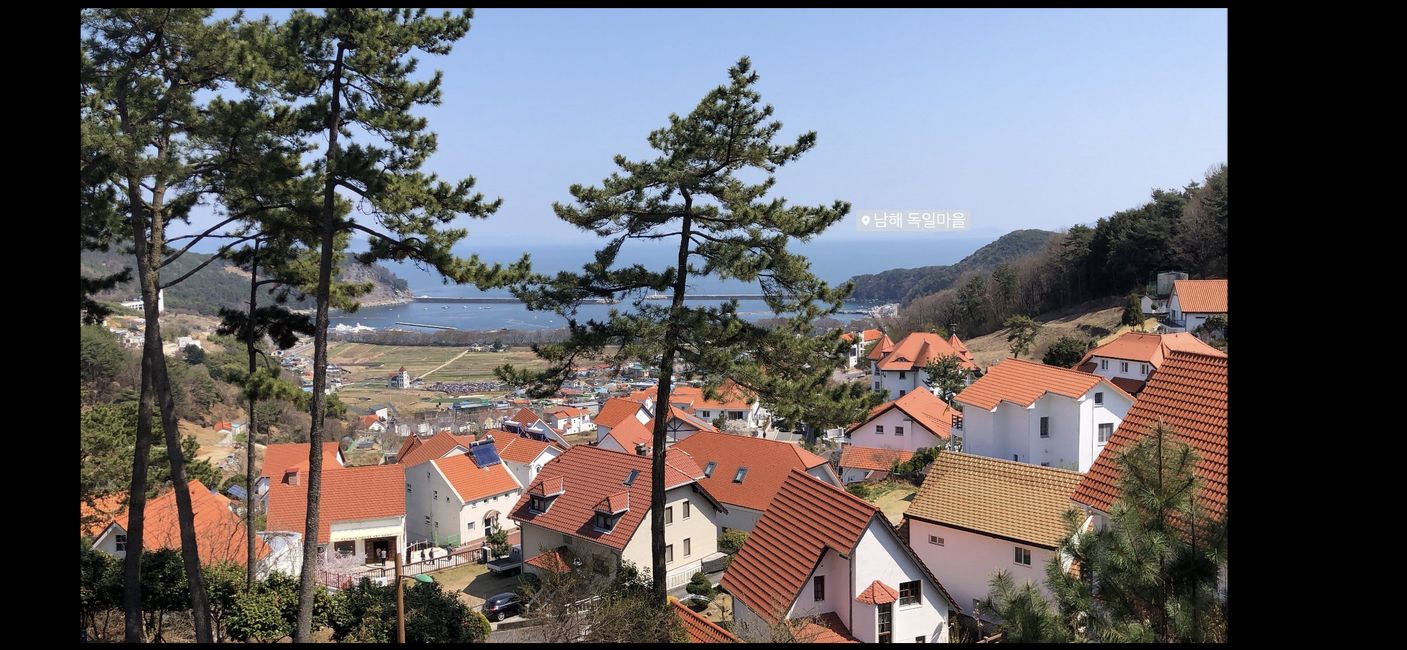
Over the weekend, I went on a trip with my community to the southern part of the country, specifically Gangjin and Namhae. We started early on Friday morning (6 am), which proved to be more difficult than expected due to a gathering the previous evening. Once all 25 people had arrived, we traveled to the south in a premium bus with comfortable seats.
First, we went to Gangjin, where we visited the small fish market and had lunch. Of course, us guys didn't pay attention to the time and ordered the wrong food. So we had to finish the delicious meat dish in 15 minutes to avoid delaying the schedule of the trip too much. Despite devouring the food, the restaurant was a funny experience due to the language barrier and sitting on the floor. Afterwards, we went to a small island nearby with full stomachs, where some people took a zipline back to the bus - but I preferred to walk back and enjoyed the spectacle with a cappuccino. After a visit to a Minhwa (Korean pictures used for warding off ghosts, later used for decoration) museum, where we were rushed through, we went for a final walk in an ecopark. Instead of staying in a hotel, we had a "homestay experience," which means we all stayed with different Korean families. Initially, it sounded cool because we all thought the families spoke some English and we could have conversations. However, it turned out that wasn't the case, so we tried to communicate at least a little using a translator. So it was more of a delicious traditional Korean dinner and breakfast. The fish in the morning, however, was a bit unusual. Oh, and the family had a full body massage chair, in which I almost fell asleep in the evening :D
On Saturday, we had a temple and Namhae on the agenda. Namhae is a coastal city where there is a small Golden Gate Bridge (Namhaedaegyo Bridge). There was also a flower festival on the bridge, so we had fun with tug-of-war, throwing paper bags, balloons, and more. As a conclusion, we had a fish (seabream) for dinner. Afterwards, we went crab fishing, which required a lot of patience and motivation. Unfortunately, except for the Koreans, no one had enough skill or patience, so we drove back to the accommodation without success. There, we dyed a scarf in traditional Korean colors and settled into our rooms. But when we saw the rooms, each of us wondered where the beds were, and when the answer was "in the closet," we all realized it was going to be an uncomfortable night. So we had a small farewell party to bring sleep. Before that, we emptied the beer supply at the small village store.
On the last day, after breakfast, we went to a beach where we unfortunately found a dead turtle. After the girls took pictures with the dead turtle, they dug a grave (all documented on Instagram...). We then drove along the coast and stopped at several beautiful viewpoints before reaching the "German Village," our last activity. After a conversation with a bratwurst seller (he studies in Cologne and is visiting home), I can now say the following about the origin:
In the mid-19th century, many Koreans emigrated to Germany for work. Upon retiring, they returned to Korea and settled in this village because the mayor offered them cheap land. And so the "German Village" was born. It didn't feel very German to me. Beer brands I had never heard of, French music at the entrance to the village, or the bad bratwurst perhaps contributed to my evaluation.
Anoyie
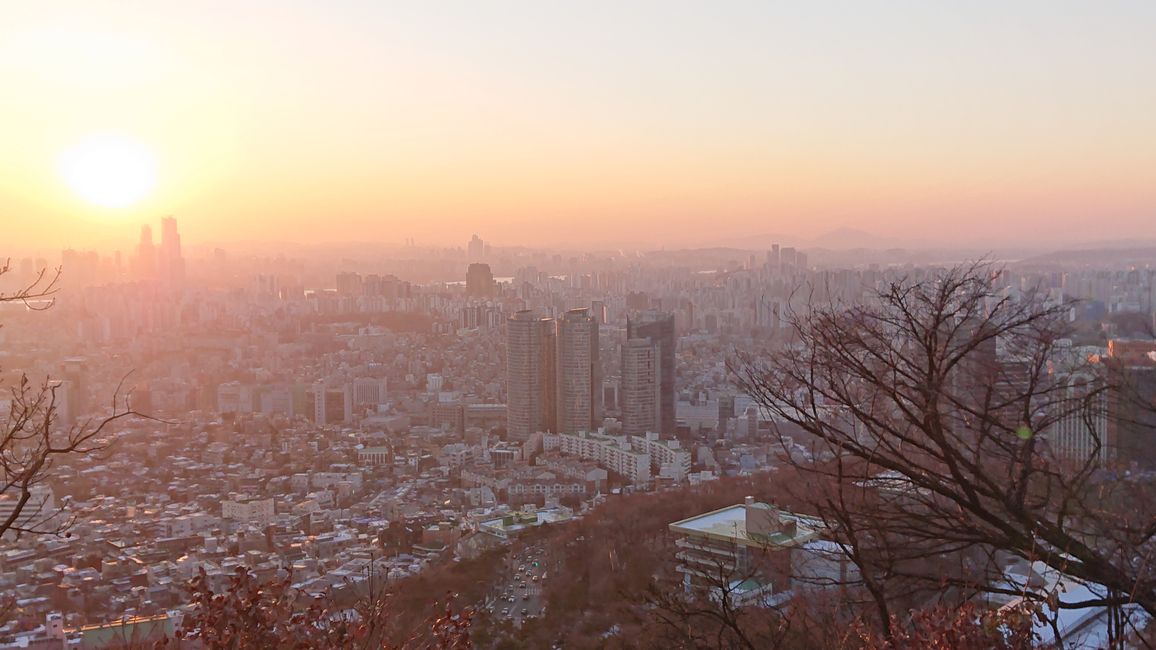
Akwantuo ho amanneɛbɔ South Korea
